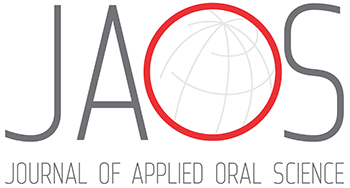Objective:
The aim of this study was to evaluate a possible synergism between AGE-RAGE and TLR4 signaling and the role of p38 MAPK and NF-kB signaling pathways on the modulation of the expression of inflammatory cytokines and proliferation of cells from the innate and adaptive immune response.
Material and Methods:
T lymphocyte (JM) and monocyte (U937) cell lines were stimulated with LPS and AGE-BSA independently and associated, both in the presence and absence of p38 MAPK and NF-kB inhibitors. Proliferation was assessed by direct counting and viability was assessed by a biochemical assay of mitochondrial function. Cytokine gene expression for RAGe, CCL3, CCR5, IL-6 and TNF-α was studied by RT-PCR and RT-qPCR.
Results:
RAGE mRNA expression was detected in both cell lines. LPS and AGE-BSA did not influence cell proliferation and viability of either cell line up to 72 hours. LPS and LPS associated with AGE induced expression of IL-6 and TNF-α in monocytes and T cells, respectively.
Conclusions:
There is no synergistic effect between RAGE and TLR signaling on the expression of IL-6, TNF-α , RAGE, CCR5 and CCL3 by monocytes and lymphocytes. Activation of RAGE associated or not with TLR signaling also had no effect on cell proliferation and survival of these cell types.
Periodontal diseases; Diabetes mellitus; Innate immunity; Acquired immunity; Advanced glycosylation end products




